Introduction
Progressing as a software developer involves much more than just sharpening technical skills. Through years of hands-on experience, certain effective habits and strategies become clear for those aiming to rise from junior roles to more advanced positions. In this post, you'll discover actionable steps to accelerate your career development in the tech industry.
Professional Growth Timeline
Career paths in software engineering often involve transitions between various roles, teams, and approaches. Starting out as an intern or work-study participant, a developer may earn full-time employment, transition to specialized teams, and eventually take on broader responsibilities. Key inflection points, such as organizational restructuring or adopting new work models, provide fresh challenges and opportunities to grow.

Habits That Accelerate Advancement
Maintain a Record of Your Work
Keeping a regularly updated work journal—listing the tasks and achievements you've completed—proves invaluable. Whether you do this weekly or monthly, such documentation becomes incredibly useful when preparing for performance reviews or polishing your resume. Rather than struggling to recall details after the fact, a work log allows you to accurately demonstrate your progress and impact, from technical milestones to business outcomes.
Step Outside Your Comfort Zone
True learning takes place when you tackle unfamiliar responsibilities, collaborate on new projects, or explore different technologies. Once you feel proficient in a certain role or area, it's beneficial to mentor others and actively seek fresh challenges—be it improving processes, volunteering for organization-wide initiatives, or contributing to unfamiliar codebases. Engaging with new topics, even those initially outside your interests, leads to broader expertise and enhances your capacity to support colleagues.
- Mentor less experienced developers
- Write documentation to share knowledge
- Join cross-functional projects or communities within your organization
- Support hiring processes through technical interviews
- Participate in company meetups or guilds
Explore Beyond Your Team’s Scope
Familiarizing yourself with projects and systems outside your immediate team strengthens your understanding of the entire organization. Periodically reviewing internal documentation, attending tech demos, and asking insightful questions will help you comprehend how different components fit together. Creating diagrams or explanatory docs can clarify complex systems for yourself and others.
Gain Experience with On-call Duties
If your organization supports a structured, fair on-call process, volunteering can be an eye-opening way to grasp how systems behave under stress. On-call participation fosters empathy for those maintaining uptime after hours and builds resilience as you solve real-world outages. You’ll gain behind-the-scenes knowledge and a stronger sense of responsibility for product reliability.
Consider Team Transfers for Growth
Switching to a different team within your company can reinvigorate your learning, expose you to new problems, and allow you to share practices between groups. If you've become too comfortable, feel misaligned with your current team, or seek a healthier work environment, an internal move can offer new perspectives without sacrificing familiar company culture or benefits.
Cultivate Your Writing Skills
Writing is fundamental in software development—not only for code, but also for documentation, proposals, incident reports, and blog posts. Blogging sharpens your ability to communicate complex ideas, reinforces your understanding, and builds your personal brand. Publish for yourself first; with continued practice, your writing will improve and may reach wider audiences over time.
Things to Approach Differently
Introduce Changes with Care
When proposing new technologies, methodologies, or large-scale code restructuring, it's important to consider your team's readiness and long-term maintainability. Even well-meant changes can backfire if only a few people truly understand them. Prioritize pragmatic solutions, ensure sufficient knowledge transfer, and avoid becoming the sole expert on critical systems.
Manage Emotional Responses in Team Settings
Disagreements naturally occur, but airing strong emotions in group meetings can disrupt cohesion and comfort. Instead, opt for private one-on-one discussions or debrief with your manager if conflict arises. Prompt, respectful communication afterwards helps resolve misunderstandings and preserves team unity.
Periodically Engage with the Job Market
Even if you’re happy in your current role, testing external opportunities keeps you attuned to your market value and interview expectations. The process may be overwhelming at first, especially for those with little hiring experience. However, it’s a practical way to assess your worth, identify compensation gaps, and stay prepared for future transitions. Regular interviewing doesn't mean you have to leave; it’s a healthy career exercise.
Summary Table: Practices for Career Growth
| Practice | Benefit | Potential Risk |
|---|---|---|
| Keep a work log | Easier reviews & resume updates | Requires regular discipline |
| Leave comfort zone | Rapid learning & mentorship | May feel uncertain at first |
| Internal networking | Broader company insight | Time investment |
| On-call shifts | Real-world troubleshooting Greater empathy |
Possible stress without good support |
| Writing/blogging | Communication skills Personal brand |
Time & effort up front |
| Mindful change management | Team stability | Slower rollout |
| Market check-ins | Salary awareness Preparedness |
Can be overwhelming at first |
Conclusion: Nurturing Your Network
Most of these strategies center around soft skills, self-reflection, and community. The journey toward becoming a stronger developer is also about maintaining meaningful connections—especially with mentors and peers who inspire you. Stay open to their advice and consider reaching out, as building a strong professional network can lead to unexpected learning and opportunities. Apply the practices above as they fit your situation, and remember that steady improvement is a long-term investment.